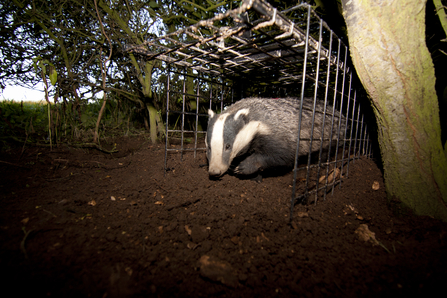Despite strong public opposition, a string of Government failures and MP recognition that an alternative strategy to deal with bovineTB is needed, plans to continue - and extend - badger culling - are expected this week.
The Wildlife Trusts today launch an appeal aimed at the Prime Minister to bolster support for alternatives.
According to yesterday’s edition of The Sunday Times, the Government’s badger culls are to restart this summer, with a third zone in Dorset added to the existing areas in Somerset and Gloucestershire.
Paul Wilkinson, Head of Living Landscape for The Wildlife Trusts, said:
“We are today launching an e-action to ensure the Prime Minister feels the weight of serious public concern that any plans for continued and extended culling will make matters worse. The Government must take a long hard look at its policy and drop the failed culling approach to effectively tackle this disease. The justification to continue, and further extend, culling in other counties will be totally unacceptable.
“If the news reported yesterday is confirmed later this week, it will reinforce serious unease that lessons are not being learned; that the basic facts and strong public opinion are falling on deaf ears with what can only be dire consequences. We continue to push for badger culling to be dropped from the Government’s bTB strategy. It must prioritise badger vaccination, alongside a comprehensive package of cattle measures: better biosecurity, stricter movement controls, improved TB testing and development of a cattle vaccine.

